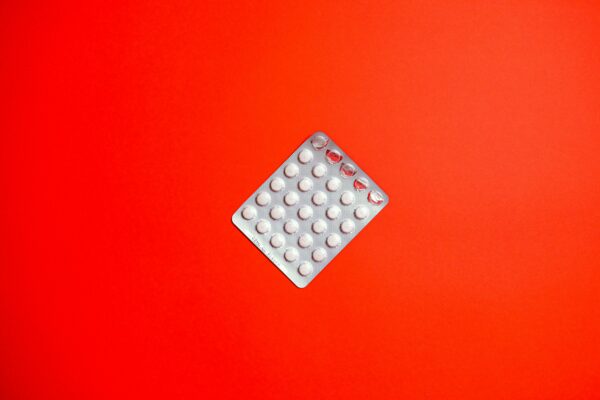When a blood thinner like warfarin enters the conversation, most men think about preventing strokes and blood clots—not about what it might do to their bedroom performance. But let’s be real: if a medication messes with your circulation, it could mess with your erections too. And for men taking warfarin, that’s exactly what might be happening.
In this deep dive, we’ll unpack everything you need to know about warfarin and erectile dysfunction (ED)—from how it happens to what you can do about it.
- How Warfarin Affects Erectile Function
- Why ED Might Be More Common in Men on Warfarin
- Can You Fix Warfarin-Induced Erectile Dysfunction?
- The Bottom Line
- Studies, Sources, and Links
- FAQs: Warfarin and Erectile Dysfunction
- Question: Can warfarin cause erectile dysfunction?
- Question: How does warfarin affect blood flow and erections?
- Question: Are there treatments for erectile dysfunction while on warfarin?
- Question: Can switching from warfarin to another blood thinner improve erectile function?
- Question: Does warfarin affect testosterone levels?
How Warfarin Affects Erectile Function
1. Blood Flow Is Everything for Erections
Erections are all about blood flow. When you’re aroused, your arteries expand, allowing blood to rush into the penis. But warfarin thins the blood and affects clotting, which means your vascular system is in a delicate balance.
Warfarin itself isn’t directly linked to ED, but the conditions that require you to take warfarin—like heart disease, blood clots, and atrial fibrillation—already put you at risk. If your cardiovascular health isn’t in top shape, your erectile function might not be either.
2. Side Effects of Warfarin That Can Contribute to ED
Warfarin can trigger side effects that might indirectly cause erectile dysfunction. These include:
- Fatigue and Weakness – Low energy levels can make arousal and sexual performance difficult.
- Dizziness and Lightheadedness – If your blood pressure drops too much, your body prioritizes vital organs over your sex drive.
- Bleeding Issues – Some men on warfarin notice small bruises or even internal bleeding, making rougher bedroom activities risky.
3. Anxiety and Psychological Factors
Let’s not forget the mental side of ED. If you’re constantly worried about bruising, bleeding, or heart issues, your mind isn’t exactly focused on getting in the mood.
Men who take warfarin sometimes develop performance anxiety, which can make achieving or maintaining an erection even harder.
Why ED Might Be More Common in Men on Warfarin
Several factors make erectile dysfunction more common in men taking warfarin, including:
1. Underlying Cardiovascular Disease
Men who need warfarin often have cardiovascular issues, and ED is an early warning sign of poor heart health. The same narrowed arteries that increase your risk of clots and strokes can also reduce blood flow to the penis.
2. Interaction with Other Medications
Warfarin interacts with a laundry list of drugs, including blood pressure meds, antidepressants, and cholesterol-lowering statins—all of which can contribute to ED.
3. Lower Testosterone Levels
Men with heart disease often experience a drop in testosterone, the hormone responsible for sex drive and erectile strength. If your testosterone levels are low, warfarin isn’t helping the situation.
Can You Fix Warfarin-Induced Erectile Dysfunction?
The good news? Yes, you can take steps to improve your situation. Here’s what works:
1. Optimize Your Cardiovascular Health
Since ED is often a symptom of a bigger heart problem, improving heart health should be your first step:
- Exercise regularly – Aim for at least 30 minutes a day to keep blood pumping.
- Eat a heart-healthy diet – More lean protein, vegetables, and healthy fats will help your arteries stay clear.
- Quit smoking and reduce alcohol – Both damage blood vessels and testosterone levels.
2. Review Your Medications with Your Doctor
If warfarin is making ED worse, your doctor might adjust your dosage or explore alternative blood thinners. Some newer anticoagulants, like rivaroxaban or apixaban, may have fewer side effects related to circulation.
3. Try Natural ED Remedies
Some natural solutions can boost circulation and sexual performance, such as:
- L-arginine – Helps relax blood vessels and improve blood flow.
- Citrulline – A natural compound found in watermelon that may help with nitric oxide production.
- Panax ginseng – Has been shown to enhance erectile function and libido.
4. Consider ED Medications (With Caution)
Viagra (sildenafil), Cialis (tadalafil), and Levitra (vardenafil) are commonly used to treat erectile dysfunction. However, if you’re on warfarin, you must check with your doctor first to avoid dangerous interactions.
5. Manage Stress and Anxiety
If mental stress is playing a role, techniques like:
- Meditation
- Cognitive behavioral therapy (CBT)
- Sex therapy
…can make a real difference.
The Bottom Line
If you’re taking warfarin and experiencing erectile dysfunction, you’re not alone—and you’re not out of options. The key is to identify the root cause, whether it’s circulation, testosterone levels, anxiety, or medication interactions.
Making small lifestyle changes, talking to your doctor about medication adjustments, and considering natural or prescription treatments could help you regain your confidence—and your performance.
Want to keep your sex life strong even on blood thinners? Start with heart health, smart medication management, and stress reduction—and you’ll be back in the game in no time.
Studies, Sources, and Links
To ensure the accuracy and reliability of the information provided in this article, we’ve referenced credible studies, sources, and links. Below is a comprehensive list of resources that delve deeper into the topics of Warfarin, erectile dysfunction (ED), and their potential connection.
1. Studies on Warfarin and Its Side Effects
- “Warfarin Therapy: A Comprehensive Review”
This study provides an in-depth analysis of Warfarin’s mechanisms, benefits, and potential side effects.
Link to study - “Anticoagulants and Sexual Dysfunction: A Systematic Review”
This systematic review explores the relationship between anticoagulant medications, including Warfarin, and sexual health issues such as erectile dysfunction.
Link to study - “The Impact of Cardiovascular Medications on Erectile Function”
This research examines how medications used to treat cardiovascular conditions, including anticoagulants, may affect erectile function.
Link to study
2. Research on Erectile Dysfunction and Underlying Causes
- “Erectile Dysfunction and Cardiovascular Disease: A Comprehensive Review”
This study highlights the strong link between cardiovascular health and erectile dysfunction, emphasizing the role of blood flow and vascular health.
Link to study - “Psychological Factors in Erectile Dysfunction: A Meta-Analysis”
This meta-analysis explores how stress, anxiety, and depression can contribute to erectile dysfunction, particularly in men managing chronic health conditions.
Link to study - “Lifestyle Modifications and Erectile Dysfunction: Evidence-Based Recommendations”
This research provides evidence-based recommendations for lifestyle changes that can improve erectile function, including diet, exercise, and smoking cessation.
Link to study
3. Drug Interactions and Erectile Dysfunction
- “Drug Interactions with Warfarin: What You Need to Know”
This article discusses the potential interactions between Warfarin and other medications, including those used to treat erectile dysfunction.
Link to article - “Phosphodiesterase-5 Inhibitors and Anticoagulants: A Review of Interactions”
This review examines the safety and potential interactions between ED medications like Viagra and anticoagulants like Warfarin.
Link to study
4. General Health Resources
- American Heart Association (AHA) – Warfarin and Blood Thinners
A comprehensive guide to understanding Warfarin, its uses, and its side effects.
Link to resource - Mayo Clinic – Erectile Dysfunction Overview
A trusted resource for understanding the causes, symptoms, and treatments of erectile dysfunction.
Link to resource - National Institute of Diabetes and Digestive and Kidney Diseases (NIDDK) – Erectile Dysfunction
This resource provides detailed information on the link between chronic health conditions and erectile dysfunction.
Link to resource
5. Additional Reading
- “The Role of Vitamin K in Blood Clotting and Health”
This article explains the role of vitamin K in blood clotting and how Warfarin works to inhibit its effects.
Link to article - “Erectile Dysfunction: A Marker of Cardiovascular Disease?”
This study explores how erectile dysfunction can be an early warning sign of cardiovascular issues.
Link to study - “The Psychological Impact of Chronic Illness on Sexual Health”
This research delves into how chronic illnesses and their treatments can affect mental health and sexual function.
Link to study
By referencing these studies, sources, and links, we aim to provide you with the most accurate and up-to-date information on Warfarin and erectile dysfunction. If you have further questions or concerns, consult your healthcare provider for personalized advice.
FAQs: Warfarin and Erectile Dysfunction
Question: Can warfarin cause erectile dysfunction?
While warfarin is not directly known to cause erectile dysfunction (ED), the conditions it treats—such as heart disease and blood clots—can impair circulation, leading to ED. Additionally, side effects like fatigue, dizziness, and anxiety may contribute to sexual performance issues.
Question: How does warfarin affect blood flow and erections?
Warfarin thins the blood to prevent clots, but it doesn’t enhance blood flow to the penis. The underlying cardiovascular issues that require warfarin often reduce circulation, which can impair the ability to achieve or maintain an erection.
Question: Are there treatments for erectile dysfunction while on warfarin?
Yes, treatments include lifestyle changes like exercise and a healthy diet, addressing psychological factors such as stress, and reviewing medications with your doctor. ED medications like Viagra may be an option, but it’s crucial to consult your healthcare provider to avoid interactions with warfarin.
Question: Can switching from warfarin to another blood thinner improve erectile function?
Switching to newer anticoagulants like rivaroxaban or apixaban might reduce some side effects, but it’s essential to consult your doctor before making changes. The underlying health conditions and overall cardiovascular health play a bigger role in erectile function.
Question: Does warfarin affect testosterone levels?
Warfarin itself doesn’t directly lower testosterone, but the conditions it treats, like heart disease, can lead to reduced testosterone levels. Low testosterone is a common contributor to erectile dysfunction, and addressing hormonal imbalances may help improve sexual health.
Disclaimer: This article is for informational purposes only and should not replace professional medical advice. Always consult with a healthcare provider before starting any new treatment.





